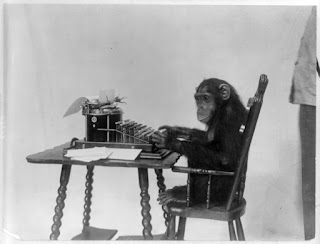When should a moderator call out lies in a formal debate?
The recent controversy in the news about whether or not debate moderators should point out lies struck a nerve with me after my classroom debates last semester. I have been doing organized and competitive team debates at the end of my third year Genetics and my third year Biology of Aging classes. These debates are on controversial social topics and have proven very popular. I would have to count it as one of my most effective assignments as it does seem to get students thinking and fired up like very few other activities. The team element also has proven an excellent way to teach group work by emphasizing the need to divide the labor based on individual student strengths. The problem I ran into head on last year was a very charismatic and persuasive student who cleverly argued a falsehood from a very weak internet source. The student is clearly a very talented debater so I want to be clear that I am not criticizing him at all. In fact it was a great performance on his part in that he could take such a weak piece of evidence and convince the room that it was true. Kudos to him for pulling it off! The problem is how to handle this in a teaching situation where the need to teach the truth may conflict with it being the other team’s responsibility to shoot down and point out the weaknesses in the argument.
This same issue is raising its head in the presidential debates where journalists whose job should be informing the public on the facts are being picked to moderate debates which need to be fair competitions. This puts the journalist moderators in a very similar type of conflict of interest. Should they be fair and not be expected to do the other side’s work for them or should they stick to their moral duty as journalists? The solution in this case is simple, we need to stop asking journalists to mediate these debates and instead ask retired judges or some other neutral party schooled in debating. It should also be explicitly stated in the rules that it is never the moderator’s role to identify the facts or misrepresentations.
In the class situation above I simply could not let the falsehood go so I did tell the class about the one off experiment, the online shenanigans and that the point was wrong, but only after the debate was over and the outcome decided. I also asked the class to consider the rhetorical techniques that our super debater skillfully employed to persuade them. Unfortunately I was still taken to task by one student in the end of semester surveys for “calling out” the star debater to the class. I don't know what else I could have done. Sometimes you just can’t win.
This same issue is raising its head in the presidential debates where journalists whose job should be informing the public on the facts are being picked to moderate debates which need to be fair competitions. This puts the journalist moderators in a very similar type of conflict of interest. Should they be fair and not be expected to do the other side’s work for them or should they stick to their moral duty as journalists? The solution in this case is simple, we need to stop asking journalists to mediate these debates and instead ask retired judges or some other neutral party schooled in debating. It should also be explicitly stated in the rules that it is never the moderator’s role to identify the facts or misrepresentations.
In the class situation above I simply could not let the falsehood go so I did tell the class about the one off experiment, the online shenanigans and that the point was wrong, but only after the debate was over and the outcome decided. I also asked the class to consider the rhetorical techniques that our super debater skillfully employed to persuade them. Unfortunately I was still taken to task by one student in the end of semester surveys for “calling out” the star debater to the class. I don't know what else I could have done. Sometimes you just can’t win.

Comments
Post a Comment